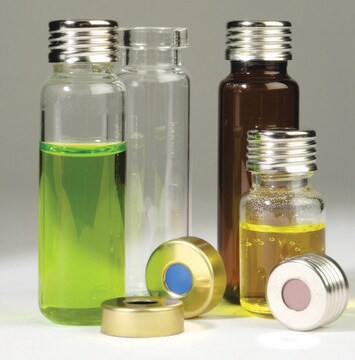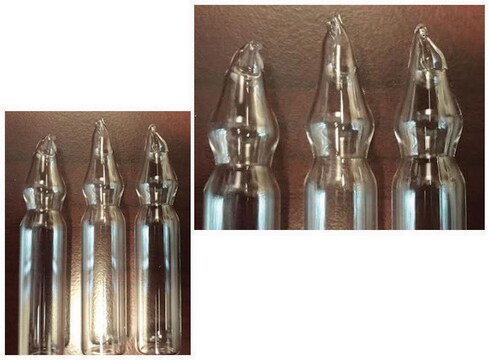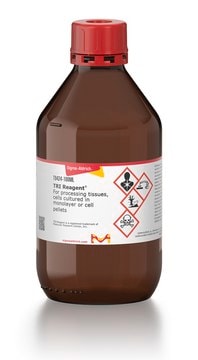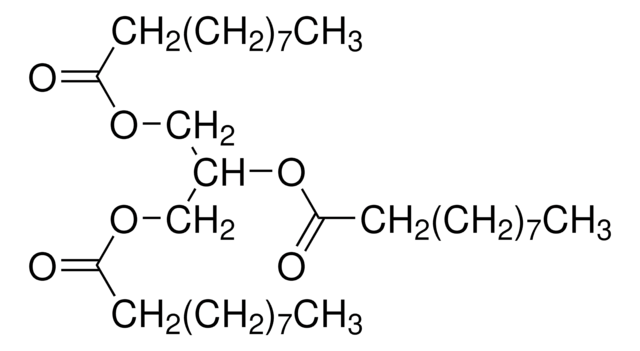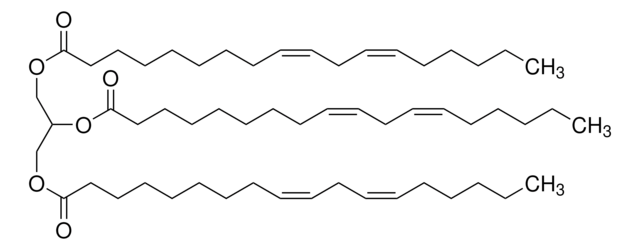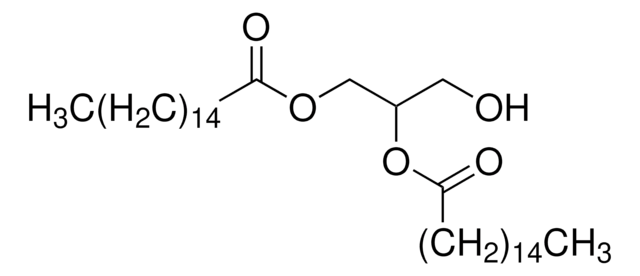T2151
Glyceryl triheptadecanoate
≥99%
Synonym(s):
TG(17:0/17:0/17:0), 1,2,3-Triheptadecanoylglycerol, Triheptadecanoin
About This Item
Recommended Products
biological source
synthetic (organic)
Quality Level
Assay
≥99%
form
powder
functional group
ester
lipid type
neutral glycerides
shipped in
ambient
storage temp.
−20°C
SMILES string
CCCCCCCCCCCCCCCCC(=O)OCC(COC(=O)CCCCCCCCCCCCCCCC)OC(=O)CCCCCCCCCCCCCCCC
InChI
1S/C54H104O6/c1-4-7-10-13-16-19-22-25-28-31-34-37-40-43-46-52(55)58-49-51(60-54(57)48-45-42-39-36-33-30-27-24-21-18-15-12-9-6-3)50-59-53(56)47-44-41-38-35-32-29-26-23-20-17-14-11-8-5-2/h51H,4-50H2,1-3H3
InChI key
FBFWDBGUSMGXPI-UHFFFAOYSA-N
Looking for similar products? Visit Product Comparison Guide
Application
- as an external standard in gas chromatography (GC) analysis for soybean seeds lipid extraction
- as an internal standard solution to correct the transesterification efficiency during lipid analysis by gas chromatography-flame ionization detector (GC-FID)
- as an internal standard in chloroform to dissolve total lipids obtained from fresh leaves of N. benthamiana for thin layer chromatography (TLC) analysis and to analyze their fatty acid content using GC
Storage Class Code
11 - Combustible Solids
WGK
WGK 3
Flash Point(F)
Not applicable
Flash Point(C)
Not applicable
Personal Protective Equipment
Choose from one of the most recent versions:
Already Own This Product?
Find documentation for the products that you have recently purchased in the Document Library.
Customers Also Viewed
Our team of scientists has experience in all areas of research including Life Science, Material Science, Chemical Synthesis, Chromatography, Analytical and many others.
Contact Technical Service



